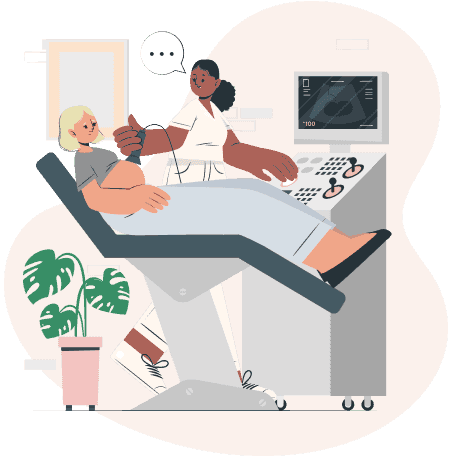The first trimester of pregnancy is an exciting journey, filled with anticipation and sometimes, a lot of anxiety. It's a phase of tremendous change, as your body begins to make room for your little one. Knowing what to expect and how to cope can help make this transformative period easier. Here are the top things new moms need to know about their first trimester and tips for navigating this phase.
Pregnancy Symptoms:
A missed period is often the first sign of pregnancy, followed by a positive pregnancy test. Subsequent symptoms might include morning sickness (nausea and vomiting), fatigue, breast tenderness, increased urination, food cravings or aversions, and emotional fluctuations. Remember, each woman's experience is unique, and these symptoms usually fade as you move into your second trimester.
Understanding Morning Sickness:
Morning sickness is a misnomer, as nausea and vomiting can strike at any time. While unpleasant, it's generally a normal part of early pregnancy. Consuming smaller, frequent meals, staying hydrated, and eating ginger or lemon can help manage symptoms. If morning sickness becomes severe (a condition known as hyperemesis gravidarum), seek medical attention.
Prenatal Care:
Your first prenatal appointment is a significant step in your pregnancy journey. Your healthcare provider will confirm the pregnancy, estimate your due date, review your health history, and conduct a physical exam. This is also a great opportunity to discuss any concerns or questions you may have.
Prenatal Vitamins:
Start taking prenatal vitamins as soon as you plan on becoming pregnant or learn that you are pregnant. Folic acid is particularly crucial in the first trimester to help prevent neural tube defects. A balanced diet is essential, but prenatal vitamins are a good way to fill in any nutritional gaps.
Lifestyle Adjustments:
Healthy lifestyle choices are now more important than ever. This includes a balanced diet, regular exercise (as recommended by your healthcare provider), adequate rest, and staying hydrated. Additionally, avoid smoking, alcohol, and limit caffeine intake as they could potentially harm your baby.
Emotional Well-being:
The first trimester can be an emotional rollercoaster due to hormonal changes. It's okay to have mixed feelings – joy, anxiety, excitement, fear – they're all part of the journey. Reach out to your support network, consider pregnancy support groups, or speak to a mental health professional if your mood swings become intense.
Understanding the Risk of Miscarriage:
The first trimester carries the highest risk of miscarriage, often due to chromosomal abnormalities. It's important to know the signs - severe cramping, bleeding, back pain, and loss of pregnancy symptoms. However, remember that every woman's body is different, and these signs do not necessarily mean a miscarriage. If you're concerned, immediately consult with your healthcare provider.
Physical Changes:
Expect some physical changes – from a thicker waistline to changes in your breasts. Embrace these transformations as signs of the amazing process taking place inside you.
Educate Yourself:
The more you know about pregnancy, the more confident you'll feel. Attend prenatal classes, read books, or join online forums to learn more about the changes occurring in your body and your baby's development.
Trust Your Body:
Your body is designed for this incredible journey. Trust its instinct and capacity to nurture a new life. Listen to what it needs, whether it's rest, certain foods, or a gentle walk in the park.
Entering motherhood is an adventure, and the first trimester marks the beginning of this beautiful journey. Keep in mind, you're not alone – don't hesitate to seek help or advice from professionals or fellow moms. Remember, each pregnancy is unique, so what worked for others may not work for you. Stay positive, take care of yourself, and look forward to the extraordinary experience ahead.

